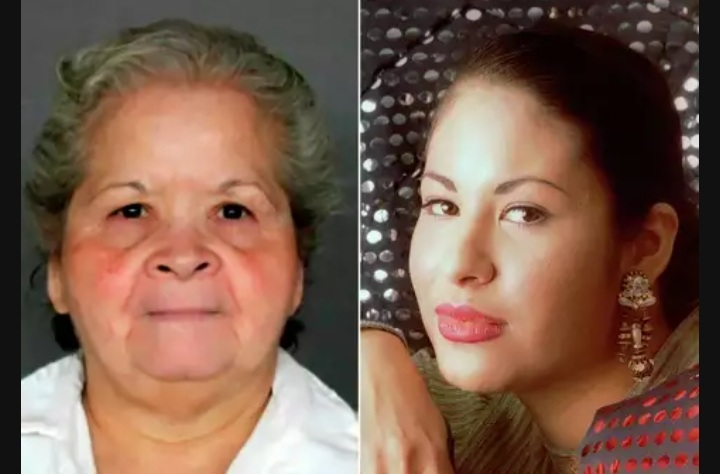CELEBRITY
Selena’s killer denied parole 30 years after Music Icon’s murder…..Read More

Thirty years ago, music legend Selena Quintanilla-Pérez was killed by her fan club’s president, Yolanda Saldívar. For the last three decades, Saldívar has served her life sentence in Texas.
Now 64, Saldívar has a petition for parole under review, according to Texas Department of Criminal Justice online records. On Sunday, she is up for parole for the very first time.
According to a spokeswoman for the Texas Board of Pardons and Paroles, her case will be voted on or around then, but there’s no exact date for the decision to be released.
Here’s everything you need to know about Selena, Saldívar and the parole process in Texas:
Who was Selena Quintanilla-Pérez?
Born in 1971, Quintanilla-Pérez demonstrated an incredible vocal gift in childhood, fronting Selena y Los Dinos with her siblings A.B. and Suzette Quintanilla.
The Texas Board of Pardons and Paroles denied parole to Yolanda Saldívar on Thursday, the woman who in 1995 was sentenced to life imprisonment for the murder of singer Selena Quintanilla.
According to CNN en Español, Saldívar was eligible to apply for parole after nearly 30 years in prison and had begun the process.
However, the Board rejected his petition and set March 2030 as the date when his case will be reviewed again.
The institution explained that the decision was based on the seriousness of the crime and the elements of the case evaluated by the Texas Board of Pardons and Paroles.
The file indicates that the crime for which she was convicted contains elements of brutality, violence, aggressive behavior, or a conscious selection of the victim’s vulnerability, indicating a deliberate disregard for the lives, safety, or property of others, such that the offender poses an ongoing threat to public safety,” the Board stated in a statement.
In another article, CNN en Español emphasized that the story of Selena Quintanilla is one of rise, unmatched talent, and a tragic death that left a profound impact on an entire generation.
Thirty years after her assassination, the so-called “queen of Tex-Mex” remains a cultural icon whose music and legacy are more alive than ever.
Selena was born on April 16, 1971, in Lake Jackson, Texas, and from a young age, she showed an extraordinary talent for singing. Her father, Abraham Quintanilla, was the one who launched her career by forming the family band Los Dinos, which also included her brother A. B. and her sister Suzette.
After moving to Corpus Christi, they began to play at local events, and little by little, Selena became a prominent figure in Tejano music.
At 15, she was already recognized as the Female Artist of the Year at the Tejano Music Awards. This recognition marked the beginning of an unstoppable career that included record deals, multiple successful albums, and a marriage to the guitarist of her band, Chris Pérez.
In 1994, Selena made history by becoming the first woman in the Tejano genre to win a Grammy, thanks to her unique style that blended mariachi, cumbia, polka, and waltz.
At just 23 years old, she had achieved international fame when her life was brutally interrupted on March 31, 1995. Yolanda Saldívar, president of her fan club and manager of her boutiques, shot her in a motel in Corpus Christi.
Although Selena managed to run to the reception to ask for help, she died in the hospital due to massive blood loss.
The trial against Saldívar took place in October 1995 in Houston. The prosecution demonstrated that she intentionally fired after being confronted about financial irregularities in the boutiques.
The defense argued that the shooting was accidental, but the forensic evidence contradicted that version. The jury took less than three hours to find her guilty, and she was sentenced to life in prison with the possibility of parole after 30 years.
On March 27, the Texas Board of Pardons and Paroles denied Saldívar’s parole application, citing the severity of the crime.
Selena’s family and her followers had expressed their disapproval of the possibility of her being released. Her father, Abraham Quintanilla, stated: “There is no remorse that can bring Selena back to us.”
Despite the tragedy, Selena remains alive in the collective memory. Songs like “Bidi bidi bom bom,” “Como la flor,” “Si una vez,” and “Amor prohibido” continue to resonate strongly on digital platforms and at concerts.











